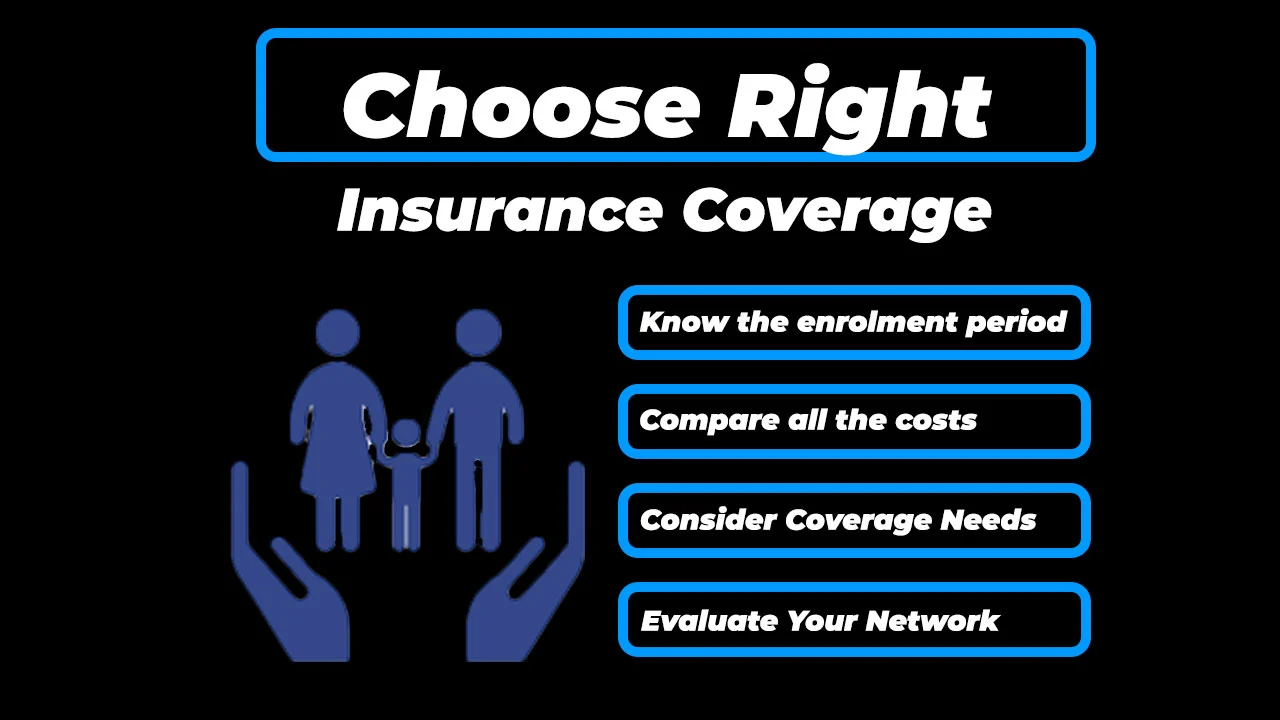Choosing the right insurance policy is a critical step in ensuring that you and your loved ones are financially protected. Whether you’re looking for Health Insurance, Life Insurance, Auto Insurance, Travel Insurance, Home Insurance, or any other type of insurance, understanding the various options available and how to select the best one for your unique needs is key to securing the right coverage.
In this beginner’s guide to insurance, we’ll walk you through a comprehensive overview of the different types of insurance policies, tips for choosing the right insurance policy, and important considerations to keep in mind while navigating the insurance landscape.
Understanding the Different Types of Insurance Policies
Insurance is not a one-size-fits-all product. There are a variety of insurance policies designed to meet different needs. Let’s break down the most common types of insurance policies you might consider:
1. Health Insurance
Health Insurance is essential for anyone who needs coverage for medical expenses. This includes doctor visits, hospital stays, surgeries, medications, and sometimes even dental or vision care. Choosing the right health insurance involves comparing premiums, deductibles, co-pays, and out-of-pocket maximums to ensure that you’re adequately covered for your healthcare needs.
2. Life Insurance
Life Insurance provides financial security to your loved ones in the event of your death. There are two main types: term life insurance and whole life insurance. Term life is typically cheaper and offers coverage for a set number of years, while whole life provides lifelong coverage and may include a savings component. When selecting life insurance, consider your family’s future financial needs, the size of your debts, and the amount of coverage that would provide peace of mind.
3. Auto Insurance
Auto Insurance is legally required in many regions and offers protection against vehicle damage, theft, and injury caused by accidents. It typically includes several components, such as liability insurance, collision insurance, and comprehensive insurance. When purchasing auto insurance, be sure to consider your car’s value, your driving history, and the minimum coverage required by your state.
4. Travel Insurance
If you are planning a trip, Travel Insurance is a must-have. It covers a range of travel-related issues, including trip cancellations, medical emergencies abroad, lost baggage, and flight delays. There are different levels of travel insurance, depending on the coverage you require, so it’s important to compare the plans carefully to ensure you’re getting the best value for your money.
5. Home Insurance
Home Insurance protects your property and possessions in the event of damage or theft. It can also cover liability in case someone is injured on your property. Home insurance policies vary widely in terms of coverage, so it’s important to assess the risks specific to your area—like flooding, earthquakes, or other natural disasters—and adjust your policy accordingly.
6. Business & Startup Insurance
If you’re running a business or just starting out, Business & Startup Insurance is a must. This includes general liability, property insurance, and worker’s compensation coverage. Choosing the right business insurance ensures that your company is protected against unforeseen risks, including accidents, employee injuries, and lawsuits.
7. Pet Insurance
For pet owners, Pet Insurance offers coverage for veterinary bills, which can sometimes be costly. Policies vary widely, with some covering routine checkups, vaccinations, and other health-related expenses, while others may only cover emergencies or surgeries. When selecting pet insurance, make sure it covers your pet’s specific needs and medical history.
8. Digital Insurance
With the rise of technology, Digital Insurance is becoming increasingly popular. This type of insurance offers coverage for digital assets, cybersecurity risks, and the liability associated with digital transactions. If your business involves significant digital operations, or you frequently work online, investing in digital insurance may provide essential protection against cyber threats.
Key Factors to Consider When Choosing an Insurance Policy
Selecting the right insurance policy can be overwhelming, especially if you are a first-time buyer. Here are some tips for beginners to help you navigate the decision-making process:
1. Assess Your Needs
Before you begin shopping for an insurance policy, take some time to evaluate your personal situation. Consider factors such as:
- Your health history and medical needs (for Health Insurance)
- The size of your family and their future financial needs (for Life Insurance)
- The value of your home or vehicle (for Home Insurance and Auto Insurance)
- Your travel plans (for Travel Insurance)
2. Compare Policies
One of the most important insurance tips for beginners is to always compare policies before making a decision. Look at the coverage limits, exclusions, premiums, and deductibles. Use online tools for insurance policy comparison to make side-by-side comparisons of the best insurance policies available.
3. Understand Coverage Limits
Each insurance policy has specific coverage limits, which determine how much the insurer will pay in the event of a claim. Be sure to understand the limits of your coverage before signing a contract. If necessary, consider adding extra coverage for certain risks, such as flood or earthquake insurance.
4. Check for Exclusions
Insurance policies often include exclusions that limit the coverage provided. For instance, some auto insurance policies may not cover damages caused by natural disasters or vandalism. Similarly, home insurance may not cover certain types of damage, such as flood damage. Carefully read the fine print to avoid surprises down the road.
5. Review the Insurer’s Reputation
Choosing the right insurance policy also involves selecting a reputable insurer. Read customer reviews, check financial ratings, and verify the company’s claims process. A reliable insurer will provide clear terms, good customer service, and a straightforward claims process.
6. Seek Professional Help
If you’re unsure about what type of coverage you need, consider consulting an insurance broker or agent. A professional can help you understand your options, guide you through the purchasing process, and ensure that you’re getting the best value for your money.
Common Mistakes to Avoid When Choosing Insurance
There are several common mistakes that beginners often make when purchasing insurance policies. Here are a few to watch out for:
1. Overlooking Your Budget
While it’s tempting to choose the cheapest policy available, it’s important to balance cost with the level of coverage you need. A low-premium policy might seem appealing, but if it doesn’t provide sufficient coverage, you may be left with significant out-of-pocket expenses in the event of a claim.
2. Ignoring Policy Exclusions
Many people fail to carefully review policy exclusions. This can lead to a rude awakening when a claim is denied due to coverage gaps. Always read the fine print and make sure you fully understand what’s covered and what’s not.
3. Not Updating Your Policy
As your life circumstances change, so too should your insurance policy. Be sure to update your policies as needed—whether it’s adjusting your auto insurance after purchasing a new car, updating your life insurance to reflect a growing family, or adding additional coverage to your home insurance as your property value increases.
4. Forgetting to Shop Around
Don’t settle for the first policy you come across. Take the time to explore various options and compare multiple insurance policies to find the best fit for your needs. Shopping around can help you save money and ensure that you’re getting comprehensive coverage.
Conclusion
Selecting the right insurance policy is a crucial decision that requires careful thought and consideration. Whether you need Health Insurance, Life Insurance, Auto Insurance, or Business & Startup Insurance, taking the time to research your options and compare policies will help you make an informed choice. By understanding the various types of insurance policies available and what to look for in an insurance plan, you can ensure that you and your family are financially protected in the event of unexpected circumstances.
For further guidance on how to choose insurance and make the most informed decision, follow this step-by-step guide to buying insurance.




















